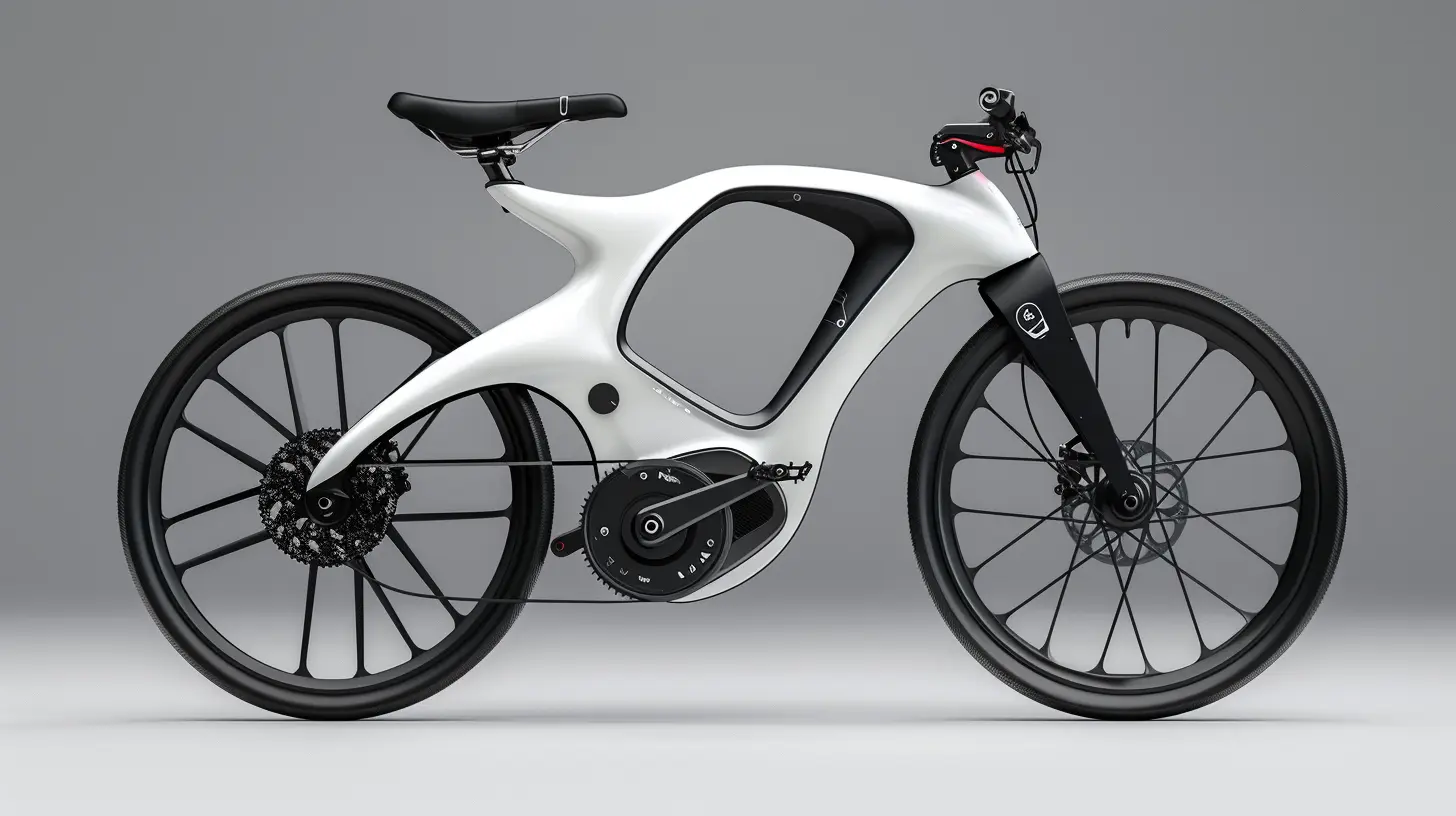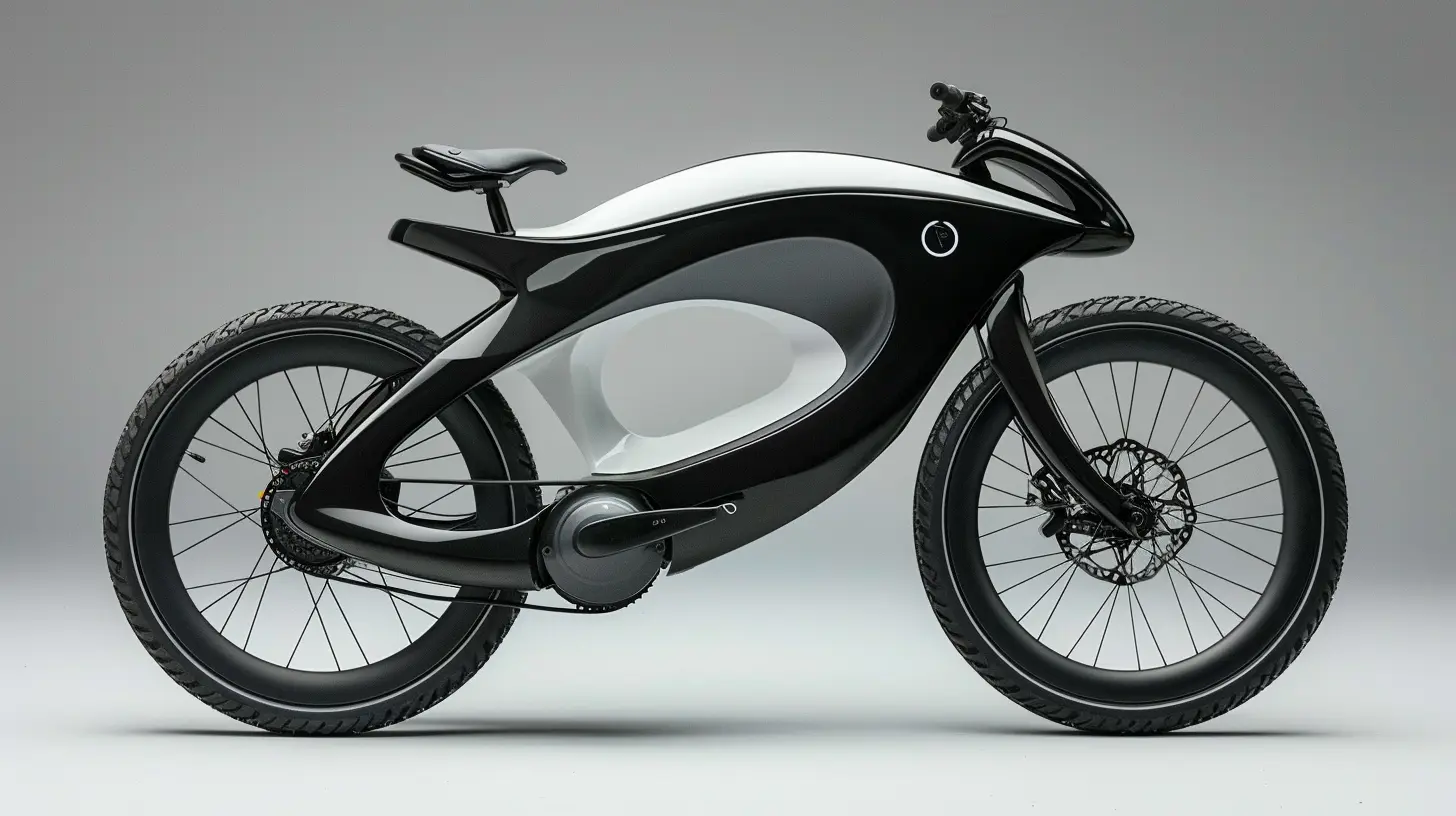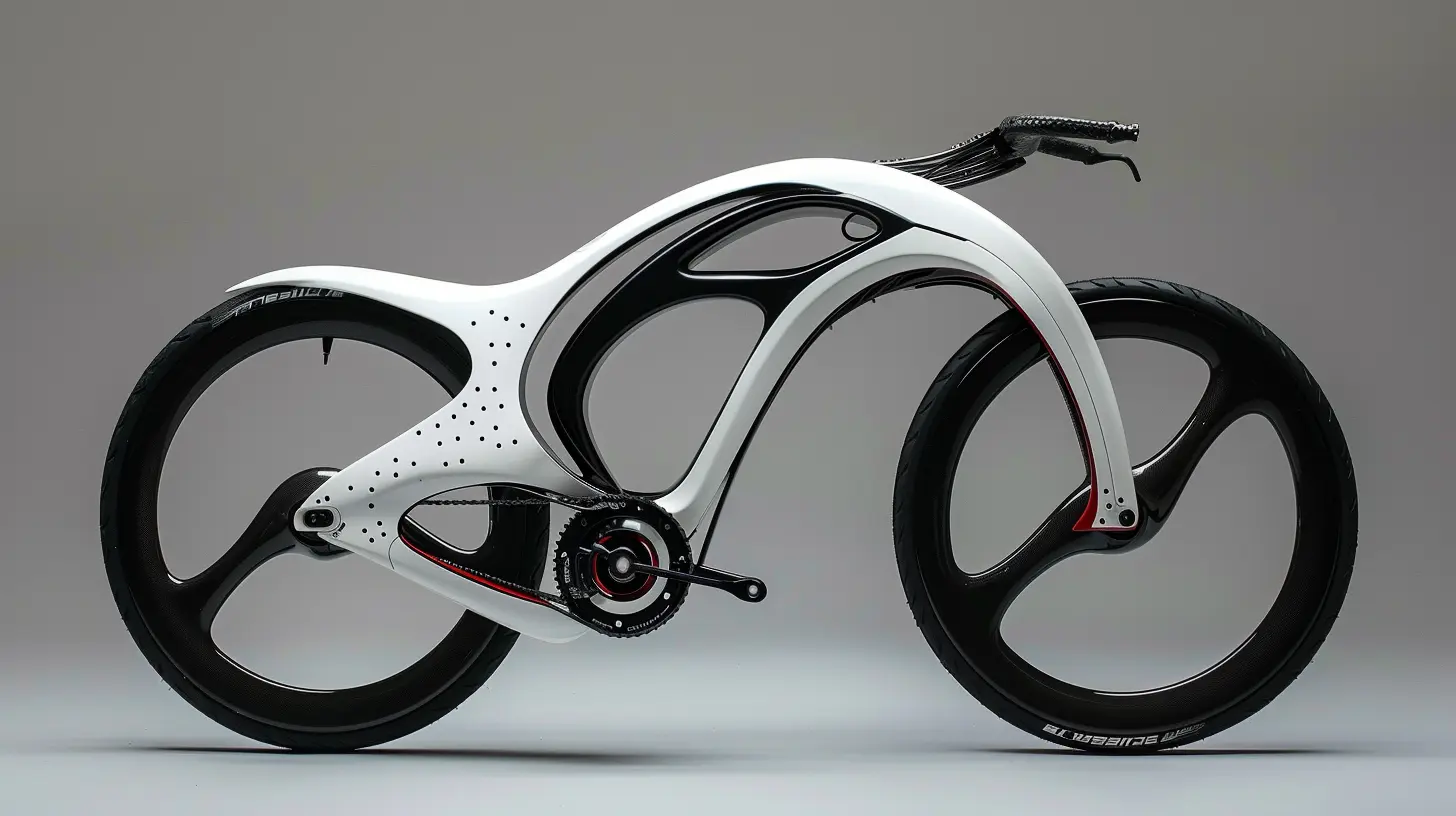Can Electric Bicycles Replace Cars for Daily Commutes?
30 May 2025
The future of transportation is electric, and while most of us are used to hearing about electric cars, there's another transportation mode that’s quietly charging ahead—electric bicycles, or e-bikes. The rise of e-bikes has sparked an interesting question: Can electric bicycles replace cars for daily commutes?
Whether you're tired of sitting in traffic or you're looking for a more eco-friendly way to get around, e-bikes are starting to feel like a game-changer. But is it realistic to think they could truly replace cars for daily commuting? Let's dive into the nitty-gritty and see if e-bikes are up to the task.

What Are Electric Bicycles (E-Bikes), Anyway?
Before we get into whether they can replace cars, let’s make sure we’re all on the same page about what an electric bicycle is. An e-bike looks just like a regular bicycle, but with one key difference—it has an electric motor that provides pedal assistance. This means that while you're still pedaling, the motor gives you a boost, making it easier to tackle hills, long distances, and headwinds.There are different types of e-bikes, ranging from those that give you a little extra help when you’re pedaling (pedal-assist) to ones that can zip along at higher speeds with minimal effort on your part (throttle-controlled).
Now that we’ve got that covered, let’s talk about whether these high-tech two-wheelers can actually stand in for cars when it comes to commuting.

The Case for E-Bikes: Why They Might Replace Cars for Commuting
1. Cost Savings: Say Goodbye to Gas and Maintenance
Let’s be real: cars are expensive. Between gas, maintenance, insurance, and parking fees, the cost of owning a car can really add up. On the other hand, e-bikes require far less upkeep. There's no need for expensive gas fill-ups, oil changes, or the dozens of little expenses that come with car ownership.Charging an e-bike's battery costs just pennies compared to filling a gas tank, and maintenance is minimal—just the occasional tire inflation and chain lubrication. Plus, many e-bikes are durable and designed to last for years, so you’re not looking at the frequent replacements you might with a car.
In the long run, switching to an e-bike for your daily commute could save you thousands of dollars annually.
2. Eco-Friendly and Sustainable: Less Emission, Less Guilt
You’ve probably heard it before: transportation is one of the largest sources of carbon emissions. Cars, especially those powered by gasoline, contribute significantly to air pollution and climate change.E-bikes are a much greener option. They produce zero direct emissions and require far less energy to operate compared to cars. Plus, charging an e-bike requires significantly less electricity compared to charging an electric vehicle (EV). If you're looking to reduce your carbon footprint, an e-bike is one of the most efficient ways to do it.
Also, e-bikes don't contribute to noise pollution. Have you ever noticed how quiet they are? It’s like the ninja of the transportation world—silent but efficient!
3. Health Benefits: Get Fit, Without the Sweat
One of the biggest complaints about regular cycling is that it can be physically exhausting, especially if you’ve got long distances or steep hills on your route. But here’s where e-bikes shine: they give you pedal assistance, which means you can still get some exercise without arriving at work drenched in sweat.Studies show that e-bike riders tend to get more exercise than those who drive cars, simply because they opt for the bike more often. It’s a sneaky way to add physical activity into your daily routine without feeling like you're hitting the gym.
And guess what? Regular exercise, no matter how light, is great for your overall physical and mental health. It helps reduce stress, keeps your cardiovascular system in check, and even boosts your mood. So, e-bikes let you stay active without the exhaustion—sounds like a win-win, right?
4. No More Traffic Jams: Skip the Gridlock
If you live in a busy city, you know the pain of rush-hour traffic. Sitting in bumper-to-bumper traffic is not only frustrating, but it also takes a toll on your mental health and productivity.With an e-bike, you can zip through bike lanes, side streets, or even take shortcuts through parks and pedestrian areas (where allowed). You can avoid the gridlock and arrive at your destination faster. In fact, for short to medium distances, e-bikes can often beat cars in city traffic.
Imagine shaving off 20 minutes (or more!) from your daily commute. That’s extra time you could spend with your family, pursuing hobbies, or even catching a few more minutes of precious sleep.
5. Parking Freedom: No More Circling the Block
We all know the headache of finding parking in a busy city. Depending on where you live, parking can be a nightmare, not to mention expensive. E-bikes, on the other hand, can be parked almost anywhere. Many cities have bike racks, and if not, you can lock your e-bike to a pole or find a small corner to stash it.If your office or destination has limited parking space, an e-bike can be a huge advantage. Plus, no more parking tickets! That alone might be worth the switch.
The Challenges: Why E-Bikes May Not Fully Replace Cars (Yet)
As amazing as they sound, e-bikes aren't perfect. There are definitely some downsides and challenges that could hold them back from fully replacing cars for everyone.1. Range and Battery Limitations
One of the most significant limitations of e-bikes is their battery range. While some high-end models can go up to 60-80 miles on a single charge, the average e-bike battery range is usually between 20-50 miles. If your commute is longer than that, you’ll either need to recharge during the day or carry a spare battery—both of which can be inconvenient.Charging can also take several hours, so if you forget to plug in your bike overnight, you might find yourself with limited power in the morning. Plus, battery performance can be affected by factors like terrain, rider weight, and weather conditions, leading to even shorter ranges.
2. Weather Dependent
Unlike cars, which offer a cozy, weatherproof environment, e-bikes leave you exposed to the elements. Rain, snow, extreme heat, or cold can make commuting by e-bike uncomfortable or downright impossible.Sure, you can gear up with raincoats and gloves, but it’s not the same as sitting in a warm, dry car. For many people, bad weather is a huge deterrent, especially in regions with unpredictable climates.
3. Limited Cargo Capacity
If you need to carry groceries, work materials, or even your kids, an e-bike may not be the most practical option. While there are cargo e-bikes designed to carry more load, they still don’t compare to the storage space of a car.For those who frequently need to transport large or heavy items, e-bikes might not be able to fully replace their car. However, they could still be used for shorter, smaller trips.
4. Safety Concerns
While e-bikes are generally safe, they do come with increased risks compared to driving a car. You’re more exposed to accidents or collisions, especially in cities where bike lanes are limited or drivers aren’t accustomed to sharing the road.Additionally, higher speeds (up to 28 mph for some e-bikes) can make accidents more severe if they occur. Wearing a helmet and following traffic rules can mitigate some of these risks, but safety remains a concern for many potential e-bike commuters.
Who Should Consider Switching to an E-Bike?
Ultimately, whether an e-bike can replace your car depends on your specific situation. If your commute is relatively short, you live in an area with decent bike infrastructure, and you don’t need to haul large items, an e-bike could be a fantastic option.For others, e-bikes might serve as a supplement to car use rather than a full replacement. You could use an e-bike for shorter trips, reducing the wear and tear on your car, saving money, and enjoying the health benefits without fully giving up the convenience of a car.
Final Verdict: Can E-Bikes Replace Cars for Daily Commutes?
So, can electric bicycles replace cars for daily commutes? The answer is a solid maybe. For many people, especially those in urban environments with shorter commutes, e-bikes are a fantastic, eco-friendly, and cost-effective alternative to cars. They’re faster than traditional bikes, easier on the wallet than cars, and much greener overall.However, they do come with their own set of limitations—like battery range, weather dependency, and limited cargo capacity—which means they might not be a perfect fit for everyone.
If you're tired of traffic, looking to save money, and want to reduce your carbon footprint, then an e-bike is definitely worth considering. Just be sure to weigh the pros and cons based on your specific commuting needs.
all images in this post were generated using AI tools
Category:
Electric BicyclesAuthor:

Vincent Hubbard
Discussion
rate this article
3 comments
Kian Fletcher
Great article! Electric bicycles offer an exciting alternative for daily commutes, combining sustainability and convenience. It's inspiring to see how they can reshape urban transportation for a greener future!
June 7, 2025 at 2:38 AM

Vincent Hubbard
Thank you! I'm glad you found the article inspiring. Indeed, electric bicycles have great potential to transform urban transport sustainably.
Renata Riggs
Electric bicycles offer a sustainable alternative, but their practicality varies by individual needs.
June 6, 2025 at 12:13 PM

Vincent Hubbard
Absolutely, electric bicycles can be a great alternative for many, but their effectiveness really depends on personal requirements and commuting circumstances.
Fennec Baxter
Electric bicycles offer an eco-friendly and efficient alternative for daily commutes, potentially reducing traffic and emissions significantly.
May 31, 2025 at 11:02 AM

Vincent Hubbard
Absolutely! Electric bicycles provide a sustainable solution for commuting, helping to alleviate traffic congestion and lower emissions.



